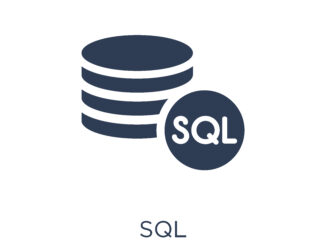Introduction
Navigating the terrain of querying long integer data (64-bit integers) in ClickHouse is a journey of optimizing performance through strategic choices in data types, leveraging indexing, and fine-tuning query operations. ClickHouse’s architecture is primed for handling massive datasets at lightning speed. Tailoring your approach to managing long integers can drastically elevate your querying efficiency, transforming raw data into actionable insights with unparalleled speed.
Mastering Long Integer Queries in ClickHouse for Peak Performance
(1) The Art of Selecting Data Types
The cornerstone of query optimization in ClickHouse begins with a simple yet impactful decision: selecting the most appropriate data type for your long integers. ClickHouse offers Int64 for signed integers and UInt64 for unsigned integers, providing a robust foundation for storing extensive numerical ranges. This choice is not merely technical but strategic, ensuring alignment with your data characteristics to prevent performance-dampening type conversions.
Example: Consider a dataset tracking user interactions across a global platform, where user_id values stretch into the billions. Opting for UInt64 to accommodate the vast spectrum of user IDs without the overhead of negative numbers streamlines data processing and storage.
(2) Embracing Compression’s Power
Compression in ClickHouse is not just a feature; it’s a game-changer. Automatic compression of stored data significantly slashes I/O operations, a boon for querying speed. Long integers, with their potential for pattern repetition, are prime candidates for compression, offering a dual advantage: shrinking storage demands and accelerating query execution.
Illustration: A dataset chronicling financial transactions can benefit immensely from compression, as transaction amounts and account numbers often follow predictable patterns, enabling efficient compression and expedited queries.
(3) Indexing and Smart Partitioning
Strategic indexing and partitioning are your allies in conquering large datasets. Incorporating the long integer column in your primary key, especially if it’s a common filter in queries, sharpens your data retrieval. Partitioning your table, perhaps on a frequently queried column like event_date, ensures that searches are confined to relevant data segments, reducing I/O and speeding up results.
Scenario: In a table cataloging event logs, where event_id is a long integer used in filtering, structuring your primary key to include event_id and partitioning by event_date directs queries precisely, avoiding wasteful data scans.
(4) Query Crafting Mastery
Efficient query construction is pivotal. Liberal use of WHERE clauses to filter data early minimizes later-stage processing. For long integers, deploying precise conditions and ranges harnesses ClickHouse’s optimization capabilities.
Utilizing IN with subqueries for dynamic long integer value filtering capitalizes on ClickHouse’s ability to streamline data retrieval, ensuring brisk and relevant results.
(5) Leveraging Materialized Views
Materialized views stand as a fortress of efficiency for aggregation tasks. By pre-computing and storing aggregated data, they circumvent the need for real-time calculations, propelling query performance to new heights.
Example: Aggregating user activity by user_id in a materialized view provides instant access to summarized data, bypassing the computational overhead for each query.
Practical Optimization Example
Imagine a scenario querying an events table, aiming to count records for user IDs within a specific range on a given date:
SELECT count(*)
FROM events
WHERE user_id BETWEEN 10000000 AND 20000000
AND event_date = '2024-03-13';
For optimal efficiency, ensure user_id and event_date are integral to your primary key or leverage event_date for table partitioning. This approach narrows the search space, granting swift and precise query results.
Conclusion: Crafting the Highways of Data with ClickHouse
In the realm of ClickHouse, mastering queries involving long integers is akin to constructing high-speed data highways. By meticulously choosing data types, embracing compression, strategically indexing, and partitioning, alongside crafting queries with precision, you unlock ClickHouse’s full potential. This suite of optimizations transforms ClickHouse into a bastion of high-performance, efficient data processing, perfectly suited for the demands of big data analytics and real-time querying environments. With these tools at your disposal, navigating the vast seas of data becomes not just manageable, but exceptionally efficient.


